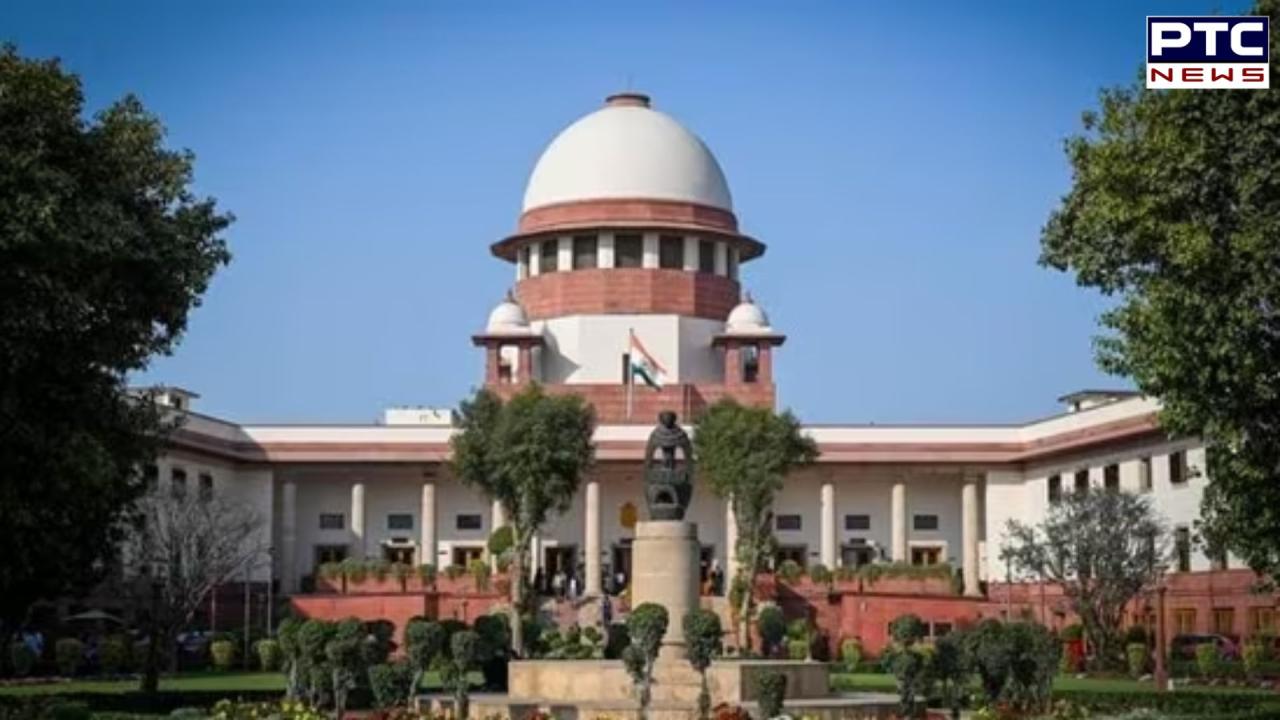The apex court has ruled that the President must act on such Bills within a maximum period of three months PTC Web Desk: In a first-of-its-kind ruling, the Supreme Court has set a time limit for the President to decide on state Bills forwarded by Governors. The apex court has ruled that the President must act on such Bills within a maximum period of three months. This historic directive, which clarifies the roles and limits of both Governors and the President under the Constitution, was made public on April 11 through a detailed court order uploaded late Friday evening.
The decision stems from a landmark judgment delivered on April 8 in the ongoing case involving the Tamil Nadu government and its Governor. The Supreme Court had observed that a Governor must take a decision on any Bill passed by the state Assembly within one month. During the same proceedings, the court went further to address the scenario where a Governor forwards a Bill to the President for consideration, bringing clarity to a previously ambiguous constitutional process.

No absolute or pocket veto powers for President Citing Article 201 of the Indian Constitution, the Supreme Court categorically stated that the President does not possess absolute veto or pocket veto powers when deciding on Bills referred by Governors. The Bench emphasised that the President’s decision is subject to judicial review, and it is the judiciary’s role to determine the constitutionality of such Bills. In its detailed order, the court laid out four key directives regarding the process: President Must Decide: Under Article 201, when a Bill is passed by a state Assembly and subsequently forwarded by the Governor to the President, the President is obligated to either approve or reject the Bill.
The court emphasised that a decision must be made and the Bill cannot be left in abeyance indefinitely. Subject to Judicial Review: The President’s decision under Article 201 can be reviewed by the judiciary, especially in cases where the Bill reflects the will of the state's Cabinet and has not been given due consideration. If it appears that the President acted arbitrarily or with mala fide intent, the court has the authority to intervene.
Deadline and Reasoning for Delay: The Supreme Court made it mandatory for the President to act within three months of receiving a Bill from the Governor. In case of any delay, valid reasons must be provided. This directive aims to bring accountability and prevent indefinite withholding of Bills.
No Repeated Referrals: The court also ruled that once a Bill has been returned to the state Assembly for reconsideration and the Assembly passes it again, the President must take a final decision. The cycle of sending the Bill back multiple times must come to an end. Earlier ruling set timeline for Governors too This decision follows an earlier April 8 ruling in the case concerning Tamil Nadu Governor RN Ravi.
In that judgment, the Bench comprising Justice JB Pardiwala and Justice R Mahadevan had asserted that Governors do not possess veto power, and termed the Governor's withholding of 10 key Bills passed by the Tamil Nadu Assembly as arbitrary and unconstitutional. The court criticised Governor Ravi for not acting on the Bills despite clear constitutional provisions and held that he should have acted on the advice and aid of the state’s Council of Ministers. The court ordered that any Bill passed by the Assembly and sent to the Governor should be acted upon within a month.
The case was triggered by a petition filed by the Tamil Nadu government, accusing Governor RN Ravi of indefinitely withholding significant legislation. Notably, Ravi is a former IPS officer and ex-CBI official who was appointed as Governor of Tamil Nadu in 2021. - With inputs from agencies.
Politics

In landmark ruling, SC sets 3-month deadline for President to decide on Bills sent by Governors

PTC Web Desk: In a first-of-its-kind ruling, the Supreme Court has set a time limit for the President to decide on state Bills forwarded by Governors. The apex court has ruled that the President














